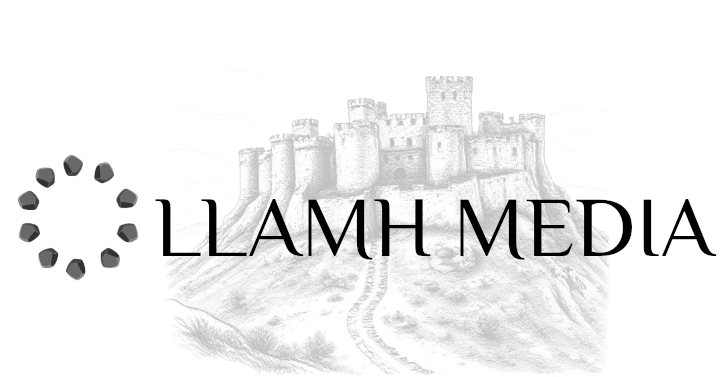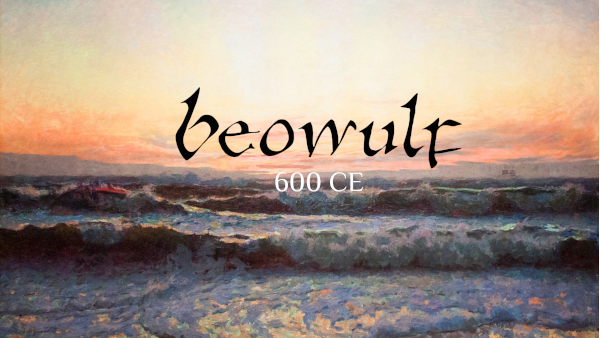The character Beowulf features as the main protagonist in what is considered the highest achievement of Old English literature and the earliest European vernacular epic.
The epic is an epitomised history of the Teutonic race, a connection to the ancestral roots of the Anglo-Saxon people, their love of war, sea, and adventure.
Beowulf himself is never portrayed as being English, as this term was not yet in existence. He was Scandinavian, as are many of the modern English peoples ancestors.
The poem has drawn comparisons to the Iliad, it consists of 3,182 alliterative lines.
“The Formation of the English People Group”
“The English descend from the early Germanic settlers who arrived on British shores during the mid-fifth century. The settlers consisted of Angles, from modern day Denmark, Saxons, from modern day Germany and Jutes, from the North Frisian coast. Consequentially the tribes settled, eventually unifying to form the people group we know today as the English.”
An in-depth analysis of the poem and its origins is a project within itself; nonetheless the character Beowulf provides a valuable insight into the the early Germanic settler’s psychology.
The Beginning of Beowulf
It begins in Denmark, Hrothgar, king of the Danes, builds a great mead-hall, or palace, as a meeting place for his subjects. The mead hall was a place of cheer; though, the sound of joy and festivities permeated further than intended. Beyond the limits of the people’s familiarity, Grendel resides.
One night upon hearing the revelry, Grendel descended upon the hall. Overcome by hateful jealously, Grendel delivered destruction. Then the slaughter commenced, no Dane could resist.
Meanwhile over the sea, Beowulf hears of Hrothgar’s misery and commits to helping the King. Therefore he rallied fourteen chosen companions, and set sail for Dane-land. Arriving, the king and his people welcome Beowulf and a celebration ensues. As the night draws to a close, the King retires to his chamber. Beowulf braces himself for the challenge ahead as the joyous noise descends into an eerie quiet.
1st Encounter
Suddenly, Grendel thunders upon the tranquil evening, butchering an unexpected warrior from amongst Beowulf’s party. Heroically Beowulf lays down his weapons and tackles Grendel. A tireless struggle commences. Grendel and Beowulf emerge from the brawl, Grendel’s shoulder torn from its socket. The monster flees in agony, howling and yelling. The wound proves fatal.
As dawn approaches, warriors in numbers flock to the hall, overcome by jubilation to hear the long-awaited news. Though unbeknown to most, peace was not to last.
2nd Encounter
That night, as Beowulf lay sleeping, the mother of Grendel set out to avenge her son’s death. Before the hero could awaken, another member of his party has gone missing. Commotion awakens Beowulf, and in an instant, he arms himself and sets out to eradicate the threat.
After travelling through the waters for many hours they meet at the sea bottom. She drags him reluctantly into her den and there he sees Grendel’s lifeless corpse.
A second more difficult struggle commences, once again the hero emerges triumphant. He swims to the surface in victory, taking with him Grendel’s head as a signifier of his success.
Beowulf has cemented himself as a hero. King Hrothgar appoints him as a leader amongst men and provides for him all the treasure that he can deliver.
The Return of Beowulf
A similar reception awaits Beowulf as he returns home. He is the hero of the hour. Beowulf becomes King of his people and successfully rules for many years.
The Death of a Hero
After ruling for fifty years, his own kingdom is woefully harried by a fire-spewing dragon. Responding in typical heroic fashion, Beowulf embarks on yet another mission, to slay the beast. However, on this occasion, the completion of the task, would cost the hero his own life.
The grief that surrounds his kingdom is inexpressible. The people rally together to construct a great funeral pyre for their deceased King.
The fire of a hero, extinguished by the fire of dragon.
A hero’s life, followed by a hero’s death.
The epic concludes with a glowing tribute to his bravery, his gentleness, his goodness of heart and his generosity.
The Legacy of Beowulf & Author’s Reflection
In this section, I will present my own understanding of the withstanding legacy of the personality of Beowulf. When we think of what is quintessentially English, nowadays we would be hard pressed to look past the idea of red buses transporting tea drinking, top hat wearing gentlemen from one place to another. Or maybe we might think of the rolling hills of England, populated by small picturesque villages, housing jolly but yet equipoised individuals. However, at the beginning of the formulation of the Anglo-Saxon bio-culture lay the story of a hero.
Beowulf is not to be confused with the Greek Hercules, nor the Irish Cu’chulainn. He was not of a supernatural disposition but merely mortal. A mortal who rose the heights of heroism through determination, self control and un-tempered ambition. I would say, it was this energy, which is ever-present within the Anglo-Saxon collective consciousness that paved the way for great exploration and conquest. The conquest and colonisation of the known world divided opinion, as there was undoubtedly a wealth of wrongs committed. Though, it cannot be argued the valiant behaviour of ordinary, albeit well organised individuals who embark on adventure and return as victors is deeply interwoven into the very fabric of the English and Beowulf is undoubtedly an archetype of this very much scrutinised vision.
Modernity most definitely would prefer an all encompassing slave morality, victim mindset and general apathy towards life. The idea of Beowulf has been over intellectualised and pre-pondered upon. I therefore humbly suggest that the character of Beowulf is to be used to further rally our own selves to achieve the un-achievable and within the face of losing our whole lives work, to bow out gracefully, without breaking character.

